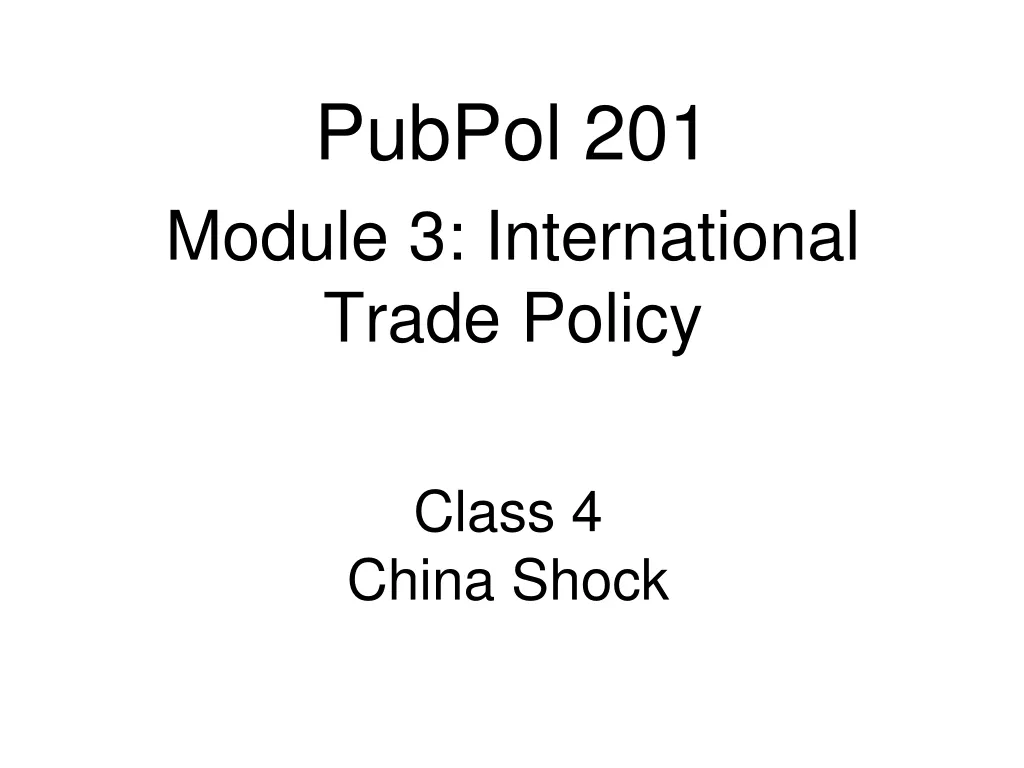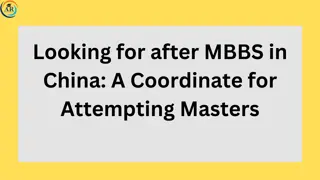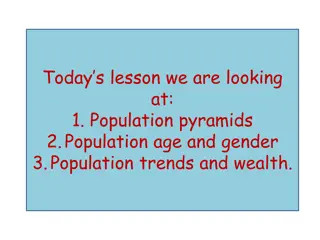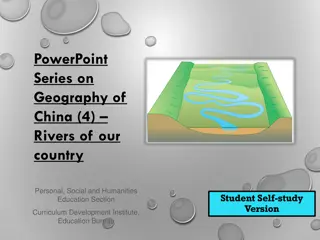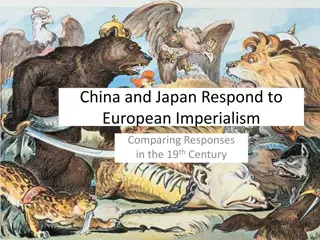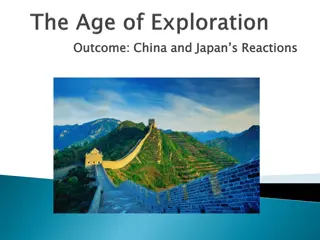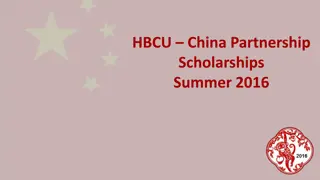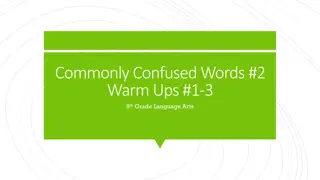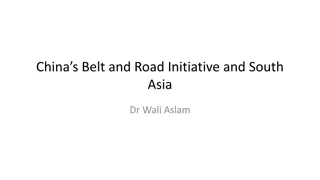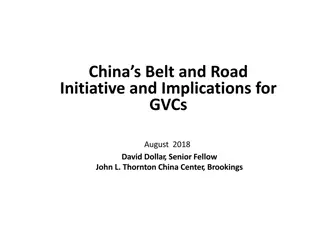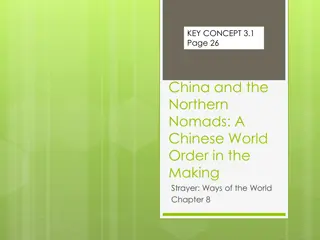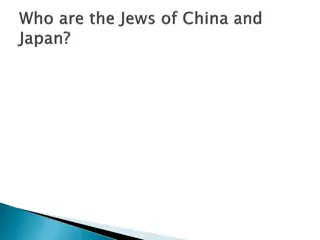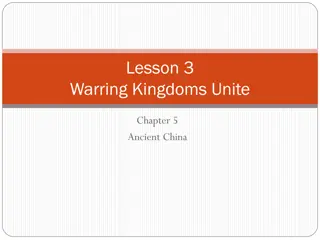Confused Generation in Modern China: Bella's Story
Bella, representing a new generation in modern China, faces conflicts between old and new values as her family dynamics shift amidst the societal changes brought by economic growth. The struggle between traditional duties and emerging individualistic perspectives is evident in her family's decisions, reflecting broader questions about cultural identity and generational relationships.
Download Presentation

Please find below an Image/Link to download the presentation.
The content on the website is provided AS IS for your information and personal use only. It may not be sold, licensed, or shared on other websites without obtaining consent from the author.If you encounter any issues during the download, it is possible that the publisher has removed the file from their server.
You are allowed to download the files provided on this website for personal or commercial use, subject to the condition that they are used lawfully. All files are the property of their respective owners.
The content on the website is provided AS IS for your information and personal use only. It may not be sold, licensed, or shared on other websites without obtaining consent from the author.
E N D
Presentation Transcript
1B A CONFUSEDGENERATION Part 1:Pre-reading activities Work in pairs. Look at the photo accompanying the article . Discuss the questions. 1. What does it show? 2. What do you think the matter is with the young girl? 3. Is this situation familiar to you?
PRE-READING ACTIVITIES WORK IN PAIRS TO DISCUSS WHAT YOU KNOW ABOUT MODERN-DAY CHINA. THINK OF THREE FACTS AND THREE OPINIONS. SAY HOW DO YOU RELATE TO CHINA: ECONOMIC BOOM, OLD VALUES, DUTY, WESTERN BRANDS, REBELLIOUS TEENAGERS. READ THE ARTICLE AND SHARE ANY NEW INFORMATION YOU LEARNED.
READ THE FOLLOWING TEXT AND ANSWER THE QUESTIONS THAT FOLLOW: Change brings problems. Bella lives with her parents in a brand new Apartment in shanghai. Her real name is zhou jiaying bella is the name that she has been given by her english teacher. Her parents are representative of a confused generation in a confused time. In modern chinese society different ideologies are fighting against each other. Enormous material benefits have been brought by china s economic boom, but the debate is not about these; it s about family life and values. Old values the respect of family and the older generations are being replaced by new ones which place money as the critical measurement of one s position in society. But at the same time these new values are also being questioned. Have our lives been made richer by all our new possessions? Is Chinese culture being supplanted? As in all changing societies people are trying to find the right balance between the new and old .
Recently, bellas family put their grandfather into a nursing home. It was a painful decision. In traditional china, caring for aged parents has always been an Unavoidable duty, but times are changing. Bella s ambition? I want one day to put my parents in the best nursing home the best that money can buy, she means. When she told us that Bella s father says, I thought is it selfish to think she will be a dutiful and caring daughter and look after us? We don t want to be a burden on her when we get old. This is something my daughter has taught us. Once it was parents who taught children, but now we learn from them. The family can buy many more things these days, and when they go shopping, Bella makes sure that the right western brands are selected. (Pizza Hut is her favourite restaurant.) She also teaches her parents the latest slang.
Her parents want to be supportive, but they no longer help with Bellas homework; in spoken English she has surpassed them. She has already learnt much more about the world outside than them. Our advice is not listened to and it is not wanted, her mother says. When she was little, she agreed with all my opinions. Now she sits there without saying anything, but I know she doesn t agree with me. Bella glares, but says nothing. I suppose our child-raising has been a failure. In China there is no concept of the rebellious teenager
Part Two: Discussion questions 1. Why does the writer think that change brings problems? 2. Why do you think Bella uses this name? And not her real name? 3. According to the text, what is the main effect of China s economic boom? 4. Give an example of an old value. 5. Discuss what effects you think China s recent economic boom have had on the attitudes of the younger generation and the older generation? Part Three: Analysis and inference questions 1. Look back at the article and find examples of the following to show how attitudes are changing in China. language use caring for the old the relationship between parents and children shopping knowledge of the world 2. Do Bella s parents seem to accept the changes that are happening in China or not? Do you think the changes are difficult for Bella too? Why? / Why not?
Vocabulary notes 1. economic boom = a period when the economy improves very quickly 2. material benefits = higher salaries, a broader range of products on sale and a better standard of living generally 3. duty = a duty is something your family or society says you must do 4. (don t want to be a) burden = a burden is a heavy load here it is used in a fixed expression meaning that somebody doesn t want to make life difficult for somebody else (compare: a financial burden) 5. latest slang = most recent phrases used by young people in the street 6. glare = to look at somebody angrily
SPEAKING DO YOU THINK THE GAP BETWEEN YOUR GENERATION AND YOUR PARENTS GENERATION IS GREATER THAN THE ONE BETWEEN YOUR GENERATION AND THE NEXT GENERATION?


